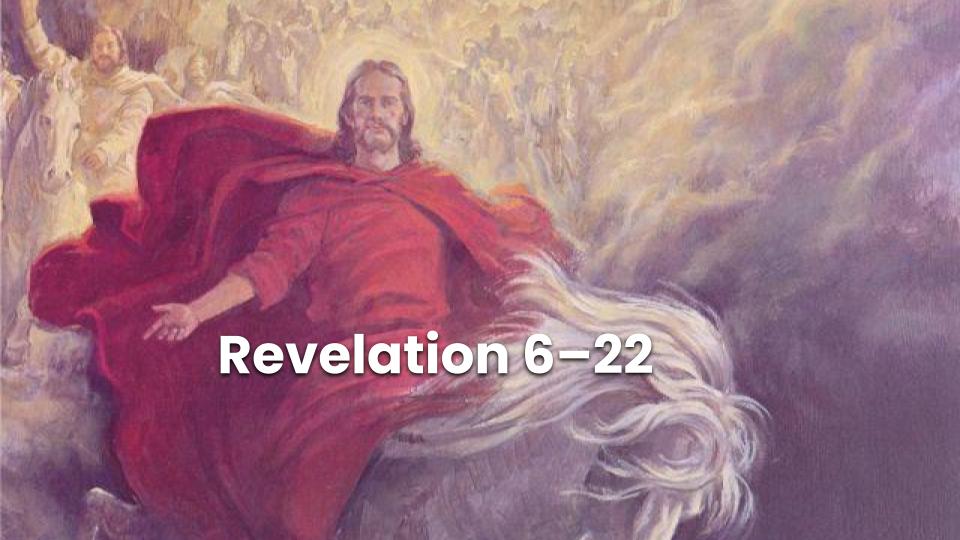Here are some ideas for learning and teaching a few of the great principles in 1-3 John and Jude. And while you’re here, I recommend you check out my free online course, “Seeking Jesus.”
Videos for 1-3 John and Jude
“What is the source of love in your life?” Short Video Devotional from “Seeking Jesus.”
The Bible Project videos are helpful for getting a big picture, you might enjoy their overview of 1-3 John and Jude.
Ideas for Learning and Teaching About 1-3 John and Jude
***What Makes You Feel Loved?***
For a lot of us, when we think of happiness, we think about love. Maybe that’s the love between a parent and child, between friends, or romantic love. Ponder this question: what is the greatest act of love that you personally have witnessed?
I’ve asked this question to many people and received a range of answers. For example, one man said, “Watching my wife struggle through a difficult pregnancy and a very challenging delivery is the greatest act of love I have seen.” Another person said, “Watching my mother work tirelessly to help refugees in need.” One of my students shared how the greatest act of love she had seen wasn’t a one-time event, but an ongoing act of love. She worked in a care facility and saw a woman come and visit her husband for several hours each day, every even though he did not remember or recognize her. That is a beautiful manifestation of love. For this student, seeing this act of love made her want to be more loving in her relationships.
So again, think about the greatest act of love that you have personally seen. And then, having witnessed that act of love up close, what impact has it had on you personally?
These questions give us a window into what scholars refer to as the moral influence theory of Christ’s atonement. In the “Seeking Jesus” course we see different aspects of the Savior’s Atonement, including the penal substitution model (meaning that Christ paid the price for our sins) and the Christus Victor model (meaning that Christ conquered Satan on the cross). These models are not in competition with each other, rather they give us different lenses for thinking about different aspects of the Savior’s infinite sacrifice.
Here’s the basic idea of the moral influence theory: the greatest act of love in the history of the world is Jesus Christ laying down his life for us. When we really understand what Christ did, we feel an immense amount of love and gratitude as result. Perhaps when you were a child you thought something like, “I have to be good so that God will love me.” This is the opposite. It’s saying that God loves me, and I really feel that. So now I want to be good, not so that God will love me, but because he loves me. As 1 John 4:19 says, “We love him, because he first loved us” (1 John 4:19).
Let’s look at a few verses that highlight the moral influence theory of Christ’s atonement. In 1 John 3:16 we read, “We know love by this, that he laid down his life for us- and we ought to lay down our lives for one another” (1 John 3:16). And 1 John 4:10-11 says, “This is love, not that we loved God but that he loved us and sent his Son to be the atoning sacrifice for our sins….since God loved us so much, we also ought to love one another.” (1 John 4:10-11, NRSV).
Mosiah chapter 5 gives us another example. In the previous chapters King Benjamin had powerfully preached about Jesus Christ and his atoning sacrifice. As a result, the people said, “We have no more disposition to do evil, but to do good continually.” Because they came to deeply know and understand Christ’s sacrifice, their hearts were changed.
It’s clear that the more we understand the Savior’s sacrifice, the more we love him. And the more we love him, the more we want to follow him, and the happier we will be. This is one reason to learn everything we can about Jesus Christ and his Atonement. How does this aspect of the Savior’s Atonement help us find more happiness?
For one thing, it gives us a better perspective on love. Yes, we can learn a lot about love from different human relationships and find great joy from them. But if our security is built on human love, we’ll eventually be disappointed. If my happiness is based on my children showing me kindness, my boss giving me a special recognition, or a friend showing me love on my birthday, eventually I will be disappointed. However, if my hope is completely centered in Christ, I will always have the courage to move forward.
Better understanding the Savior’s Atonement also helps me put human relationships in their proper perspective as I realize that Christ’s love is enough. Author Timothy Keller wrote, “If you love anything at all in this world more than God, you will crush that object under the weight of your expectations, and it will eventually break your heart. For example, if your spouse and his or her love of you is more important to you than God’s love, then you will get far too angry and despondent when your spouse is failing to give you the support and affection you need, and you will be too afraid of your spouse’s anger and displeasure to tell the truth. Only if God’s love is the most important thing to you will you have the freedom to love your spouse well.” (Prayer, 193–194).
Learning more about Christ’s Atonement can also change our view of ourselves and our motives for following God. Consider another insight from Timothy Keller. He wrote that when we really understand Christ’s love, we “want to turn away from any sin or thing that displeases our Father. We no longer do so out of fear of punishment or out of need to prove ourselves. Those motives are exhausting and inevitably create narrowness, self-righteousness, and hardness of heart… Instead, out of grateful joy and sheer desire to resemble, delight, and serve the one who saved us, we amend our lives with a new effectiveness. And on the other hand, the fears and anxieties and insecurities that haunted us begin to dissipate. Success and failure in our work neither puffs us up nor devastates us. We are not driven by unhappiness over our looks, or our status–we are not deflated by criticism as we were before. Our self-image rests in a love we can’t lose.” (Encounters with Jesus, 118).
As we come to internalize the love Heavenly Father and Jesus Christ have for us, most clearly expressed in the Savior’s atoning sacrifice, we can have new relationships with ourselves and others. I’m not dependent on others, or my own accomplishments to feel valued, because, as Keller says, my “self-image rests in a love [I] can’t lose.”
***Many Deceivers***
In 2 John 1:7 we read, “Many deceivers have gone out into the world, those who do not confess that Jesus Christ has come in the flesh; any such person is the deceiver and the antichrist!”
I’ve been thinking about “Anti-Christs” lately, because I’ve been doing a close reading of Alma 30. If you look up the word “Anti-Christ” in the Guide to the Scriptures, three individuals in the Book of Mormon are listed: Sherem, Nehor, and Korihor. But in fact, there is only one person in the Book of Mormon who is specifically called an Anti-Christ—Korihor.
The first thing Korihor did was to preach against both Jesus Christ and God. We read,
- “[Korihor] began to preach unto the people against…the coming of Christ.” (Alma 30:6)
- “[Korihor] began to preach unto the people that there should be no Christ.” (Alma 30:12)
- “God [is] a being who never has been seen or known, who never was nor ever will be.” (Alma 30:28).
- “I do not believe that there is a God.” (Alma 30:48)
Another gospel principle that Korihor repeatedly attacked was prophets:
- “He began to preach unto the people against the prophecies which had been spoken by the prophets, concerning the coming of Christ.” (Alma 30:6)
- “These things which ye call prophecies, which ye say are handed down by holy prophets, behold, they are foolish traditions of your fathers.” (Alma 30:15)
Korihor uses the word foolish more than anybody else in the Book of Mormon. His goal is to ridicule people into feeling like they are just plain dumb for believing in Jesus Christ.
One particular way that Korihor uses the word foolish is in the phrase, “foolish traditions of your fathers,” which occurs three times in the Book of Mormon and only in Korihor’s voice. So not only is Korihor mocking people in general, specifically he’s mocking them for believing the things that their parents believed. He says, “Ye lead away this people after the foolish traditions of your fathers…” (Alma 30:27).
Prominent modern atheist Richard Dawkins said, “If you are religious at all it is overwhelmingly probable that your religion is that of your parents.” We can hear echoes of Korihor mocking those who believe in the same teachings of their parents. It’s so much sweeter to hear the words from the stripling warriors, “We do not doubt our mothers knew it.” (Alma 56:48).
What do we do when we are faced with modern Anti Christs?
John tells us, “Be on your guard, so that you do not lose what we have worked for but may receive a full reward. Everyone who does not abide in the teaching of Christ, but goes beyond it, does not have God; whoever abides in the teaching has both the Father and the Son. If anyone comes to you and does not bring this teaching, do not receive and welcome this person into your house, for to welcome is to participate in the evil deeds of such a person” (2 John 1:8-11).
John’s direction to not receive such a person mimics what the Anti-Nephi-Lehis did when faced with Korihor.
When Korihor went to Jershon, the Anti-Nephi-Lehis who lived there bound him and took him before Ammon. I wish we had more details about the exchange between Ammon and Korihor, but all Mormon tells us is that is that Ammon “caused that [Korihor] should be carried out of the land” (Alma 30:21). Think about that response for a minute. While I’m not sure about tying people up, I love Ammon’s lack of response. So far as we know, he didn’t engage with Korihor, he simply said, “Get out of here.”
There’s something to that response. Imagine there are Anti-Christ media in my life—music or movies that are pointing me away from the Savior. I could cause that they are “Carried out of my life.” Or as John says, “Do not receive and welcome this [media] into your house.”
Anti-Christs and their influences are real. Remember John’s words: “Be on your guard, so that you do not lose what we have worked for.”
***Additional Resources***
“The Love of God,” by Matthew O. Richardson
“The Overlooked Epistle of Jude,” by Gaye Strathearn
Do you want more learning and teaching tips for Come Follow Me? Follow me on Instagram or sign up here for emails with insights on Come Follow Me.






